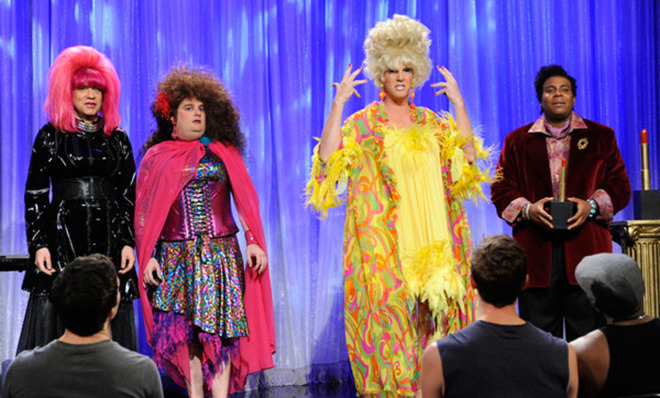Why Saturday Night Live could use an affirmative action program
Kenan Thompson's controversial remarks have sparked a lively debate about the show's diversity — or lack thereof

A free daily email with the biggest news stories of the day – and the best features from TheWeek.com
You are now subscribed
Your newsletter sign-up was successful
Kel probably won a whole new set of fans this week, after his former comedic partner Kenan Thompson said Saturday Night Live lacks black female performers because they "aren't ready."
After telling TV Guide he would no longer dress in drag to play black female characters (think Whoopi Goldberg and Maya Angelou), Thompson faced the obvious question of what would happen when the show needed to depict a black woman. "I don't know. We just haven't done them. Maybe [Jay] Pharoah will do it, but even he doesn't really want to do it," he said.
All of which is understandable. There isn't anything wrong with dressing in drag for laughs, and white and black performers on SNL have done that for years. At the same time, drag is problematic when it's done explicitly because no woman in the cast can play that character.
The Week
Escape your echo chamber. Get the facts behind the news, plus analysis from multiple perspectives.

Sign up for The Week's Free Newsletters
From our morning news briefing to a weekly Good News Newsletter, get the best of The Week delivered directly to your inbox.
From our morning news briefing to a weekly Good News Newsletter, get the best of The Week delivered directly to your inbox.
Thompson recognized that the dearth of black female performers is a problem, but his response didn't really move the situation forward. When asked why SNL lacks such performers, he said, "In auditions, they just never find ones that are ready."
And with that, cue the storm of angry people ready to bite Thompson's head off while loudly shouting the names of funny black women. Franchesca Ramsey, Erica Watson, and Nicole Byer are just a few. "It's 2013, people," writes Jessica Wakeman at The Frisky. "Funny black women aren't hiding under rocks."
At the same time, Thompson's words deserve to be placed in proper context. Getting on SNL is a ridiculously competitive process, with fantastically talented people turned away all the time (two major ones being Jim Carrey and Lisa Kudrow).
But should SNL go out of its way to hire black female performers? In other words, should the show implement a kind of affirmative action policy to ensure that one of those top black female performers gets a spot?
A free daily email with the biggest news stories of the day – and the best features from TheWeek.com
If they want to raise the quality of the show, SNL needs to make hiring black female performers a priority. At the very least, from a pure entertainment perspective, not having black female performers is hurting the show because the range of characters and sketches is severely limited.
Case in point: Michelle Obama. Sean O'Neal at A.V. Club wonders what if "there were a black woman in the White House, whose innocuous efforts to get a hate-filled nation to drink more water were somehow ripe for satire"? Oh wait, there is, and unless Maya Rudolph is in town that sketch isn't happening.
So, SNL do yourself a favor and hire some black female performers. And maybe for the first time since 1980, critics will actually stop complaining about how you're not as good as you used to be.
Emily Shire is chief researcher for The Week magazine. She has written about pop culture, religion, and women and gender issues at publications including Slate, The Forward, and Jewcy.